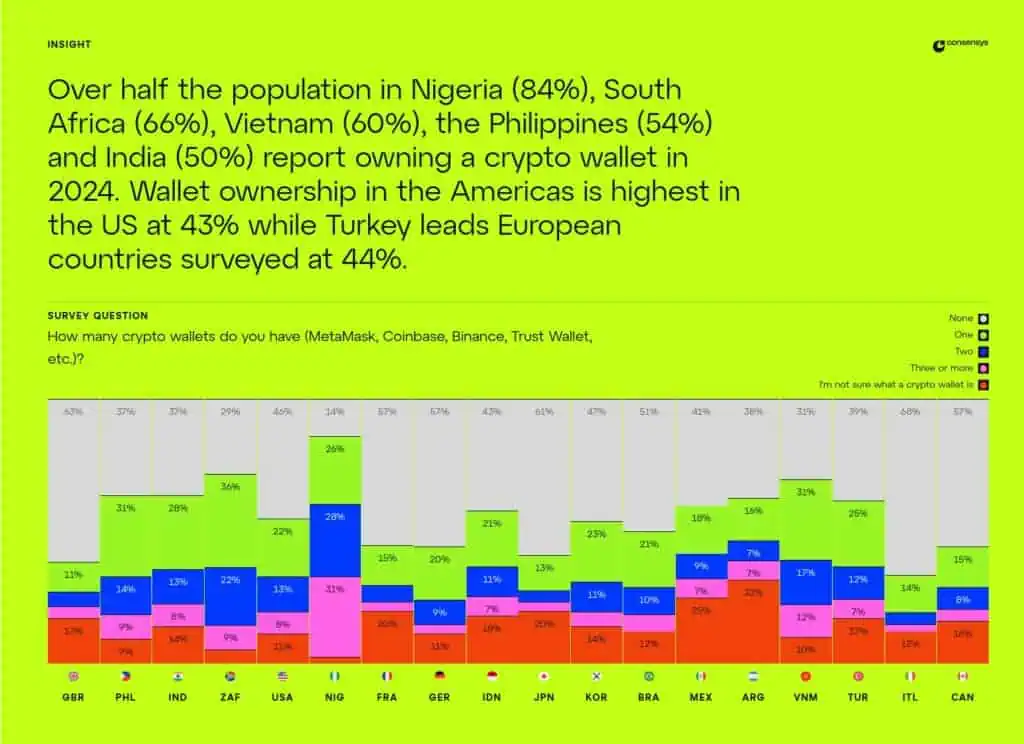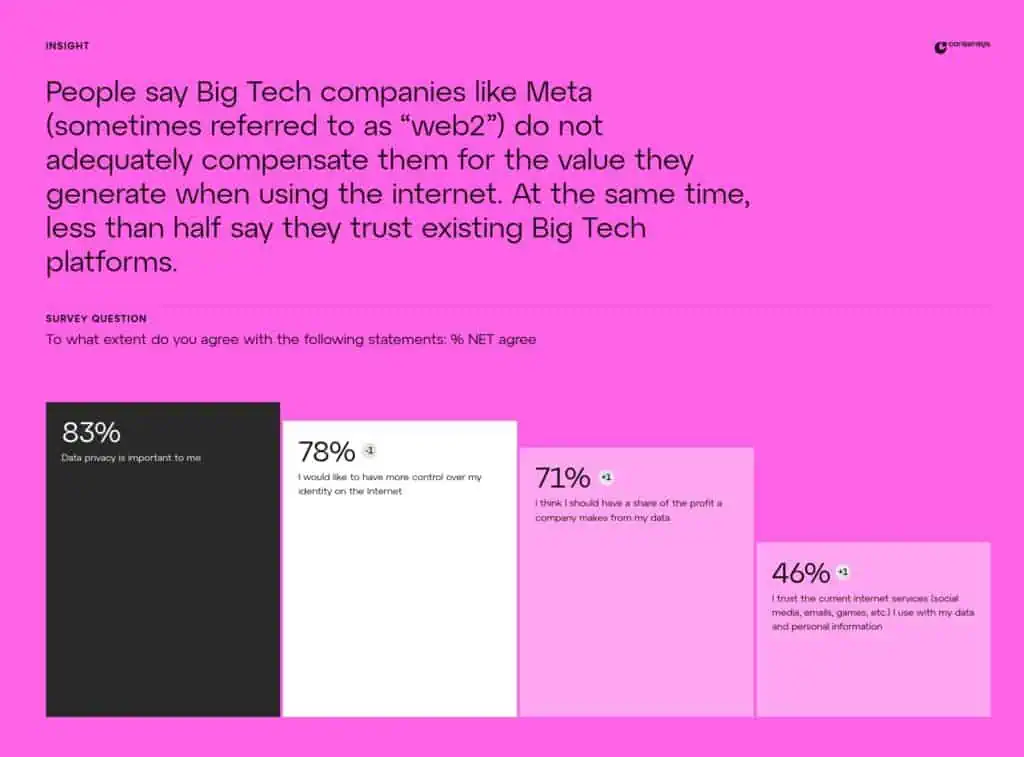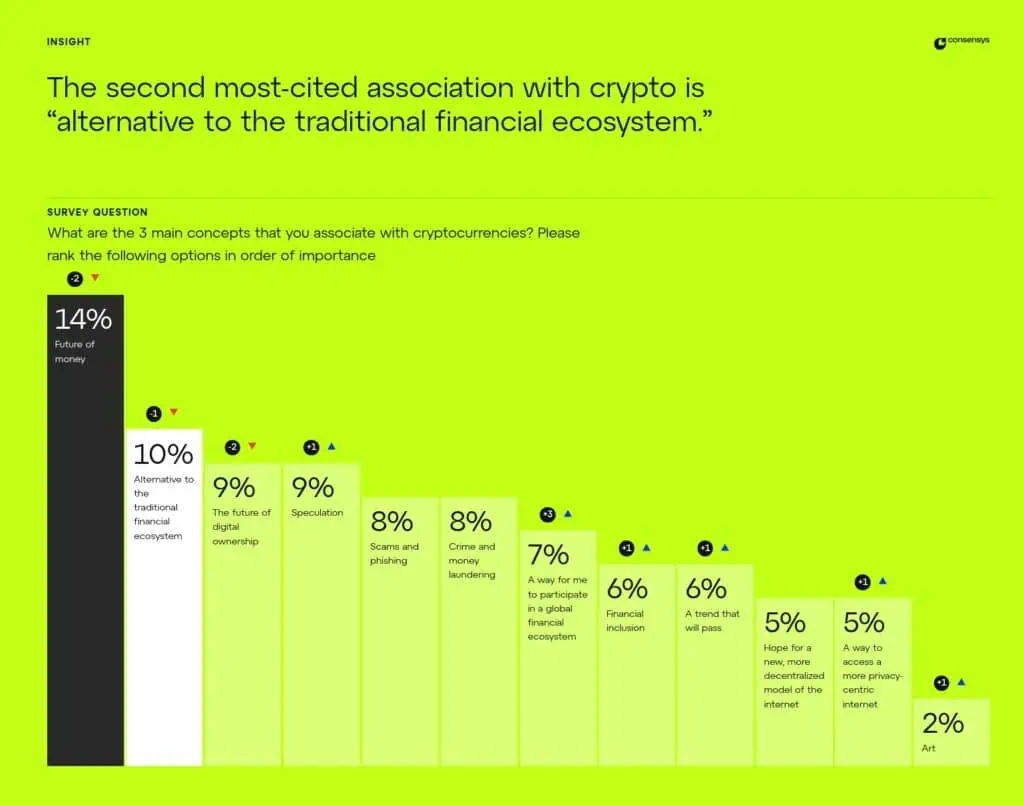
Consensys and YouGov's global survey sheds light on the significant growth that cryptocurrencies and Web3 technologies have experienced this year.
According to the report, emerging countries such as Nigeria, India and South Africa are leading the adoption of these technological innovations, while more developed regions such as Europe and North America show a growing pace of adoption. slower but steady.
The ConsenSys report, titled “Web3 perception and trends around the world”, also highlighted that the barriers to use and adoption in the crypto industry have been reduced compared to 2023, allowing users to explore the advantages of the decentralized blockchain ecosystem in a variety of ways. In addition, he stressed that stablecoins are gaining ground as a key tool to facilitate secure and efficient transactions.
Global growth and adoption of cryptocurrencies and Web3 in emerging markets
Cryptocurrency and Web3 adoption in emerging markets such as Nigeria, India, and South Africa has seen exponential growth in 2024. According to the report, more than half of the population in Nigeria (84%), South Africa (66%), Vietnam (60%), Philippines (54%) and India (50%) owns a digital cryptocurrency wallet. These numbers are particularly impressive when compared to more developed regions, where adoption, while increasing, is moving at a slower pace.
In North America, for example, cryptocurrency wallet ownership is highest in United States, with 43%, while in Europe, Türkiye leads with 44%.

Source: ConsenSys
According to ConsenSys, the growth that cryptocurrencies and Web3 are experiencing worldwide is largely due to the reduction of entry barriers.
In 2023, market volatility was the main concern for users, however in 2024, this barrier has decreased significantly, which has encouraged more people to explore the blockchain ecosystem as a whole. In addition, lThe diversity of Web3-related activities has increased, from the adoption of NFTs to the use of decentralized finance (DeFi), blockchain-based gaming, Web3 wallets, and staking services. These activities have not only made the ecosystem more attractive, but have also proven their utility in daily life.
Likewise, stablecoins, such as USDT and USDC, have played a crucial role in the growth experienced by the crypto industry in 2024. The stability and reliability offered by these digital currencies have facilitated safe and efficient international transactions, especially in countries where inflation and economic instability are recurring problems. In Argentina, for example, USDT adoption has increased by 8%, and in India, USDC has gained 9% more users this year.
Privacy, data and online identity control
ConsenSys also highlighted that the perception of data privacy and online identity control has changed significantly in 2024. According to the company's report, more than 80% of people surveyed are concerned about the excessive power of large technology companies, such as Meta (formerly known as Facebook), and want more control over their data and online identity. This concern has become a A catalyst for the adoption of cryptocurrencies and Web3 technologies, which offer decentralized and more secure solutions.

Source: ConsenSys
One of the most attractive features of blockchain technology is its ability to provide Transparency and security in data managementCryptocurrencies and Web3 wallets allow users to control their data and transactions, reducing reliance on centralized intermediaries. Additionally, the possibility of earning a share of the profits generated by personal data is an idea that has gained popularity. In the survey, 78% of respondents said they would like to have more control over their online identity and 83% consider data privacy to be important.
Another highlight is concern about artificial intelligence (AI)-generated content. More than one in three people surveyed worldwide think that decentralization, a key feature of blockchain, cryptocurrencies and Web3, could improve online social networks and content platforms, and believe it can help reduce the risks of AI-generated contentIn Nigeria, concern is especially high, with 86% of respondents expressing fears about AI-created fake content.
In this context, blockchain technology, with its ability to track and verify the authenticity of data, is presented as a promising and viable solution to mitigate these risks with the rise of AI.
Blockchain technology beyond finance
While finance remains the leading use case for blockchain technology, its potential to mitigate fraud and AI risk is gaining increasing attention. According to ConsenSys, the number of countries considering blockchain as a crucial tool to address these challenges has grown this year. The survey reveals that 38% of respondents believe that social media and other platforms based on user-generated content would benefit from decentralization. Additionally, 33% believe that the international banking system and money transfers would also be improved by the implementation of decentralized blockchain-based solutions.

Source: ConsenSys
In the financial realm, the adoption of cryptocurrencies and stablecoins continues to grow. 34% of respondents in the United States associate cryptocurrencies with an alternative to the traditional financial system, while 29% believe that the international banking system would benefit from decentralization. These perceptions reflect a growing distrust in the traditional financial system and an openness to more innovative and decentralized solutions.
In summary, the Consensys and YouGov global survey highlights significant growth in the adoption of cryptocurrencies and Web3 technologies, especially in emerging markets, in 2024. The reduction of barriers, the diversity of Web3-related activities, and the importance of stablecoins have contributed to this momentum. Furthermore, concerns about data privacy and online identity control have driven the adoption of decentralized solutions, which are also seen as a potential tool to mitigate the risks of AI-generated content.
So, as more countries explore the potential of blockchain beyond finance, the Web3 ecosystem will continue to evolve and gain traction in the global digital transformation.


